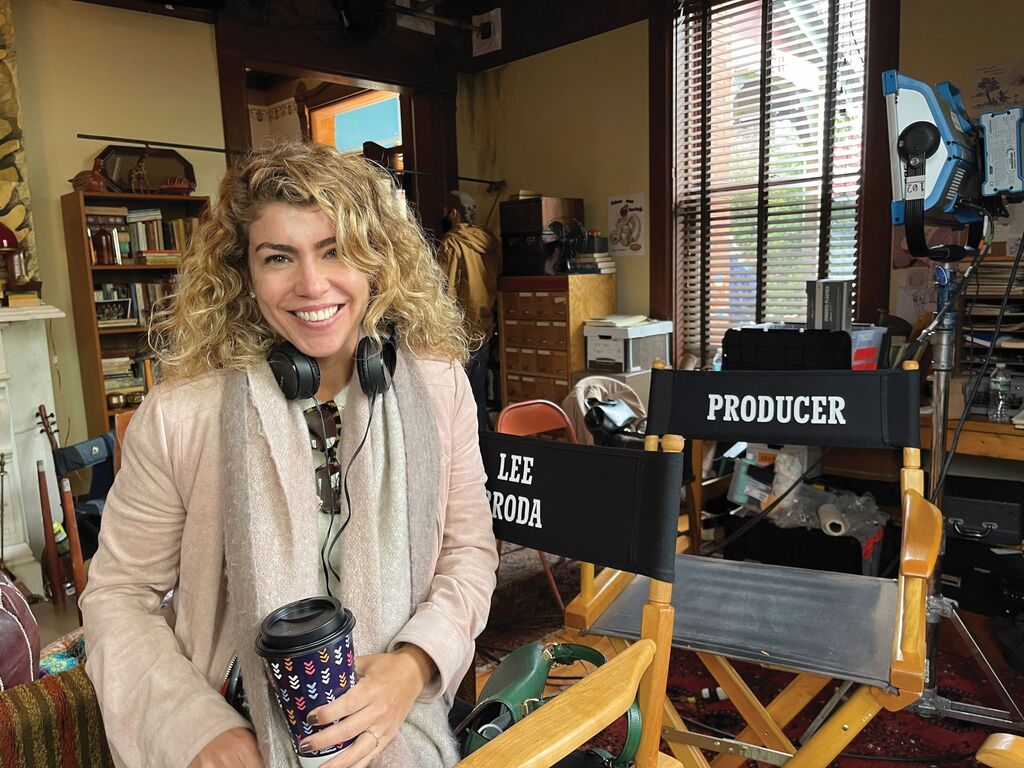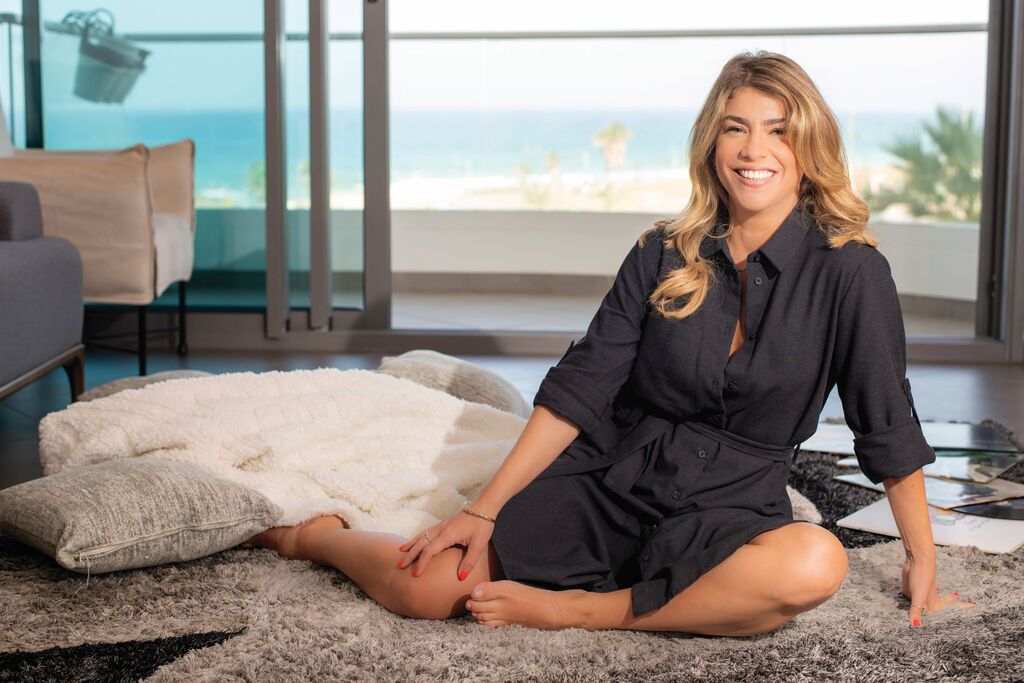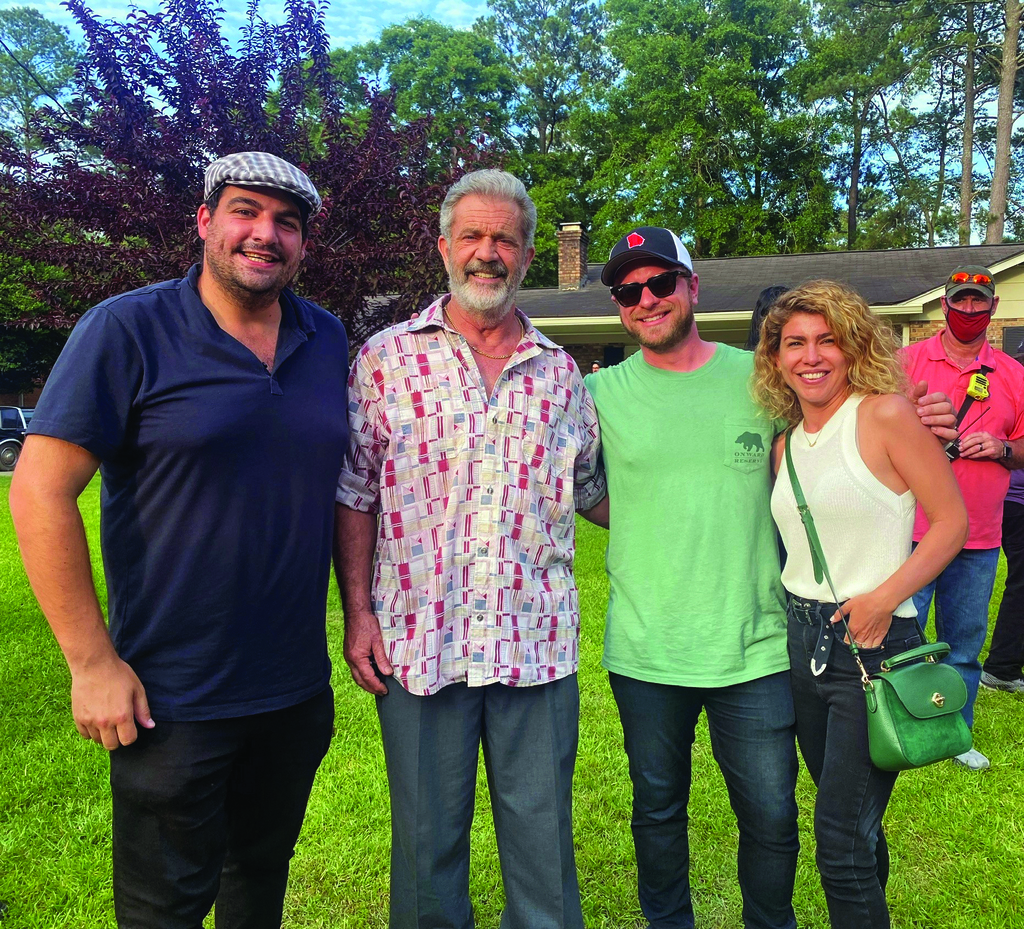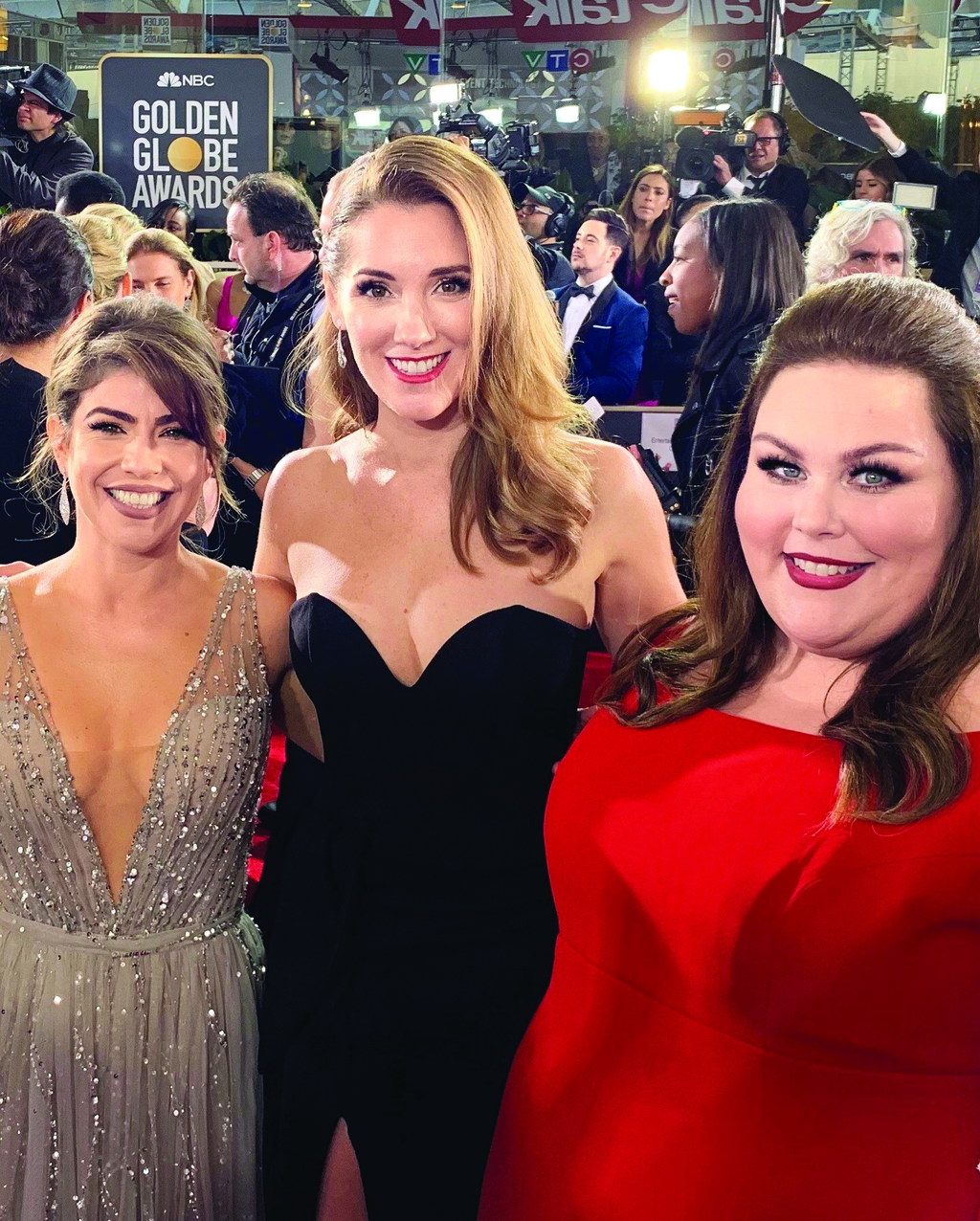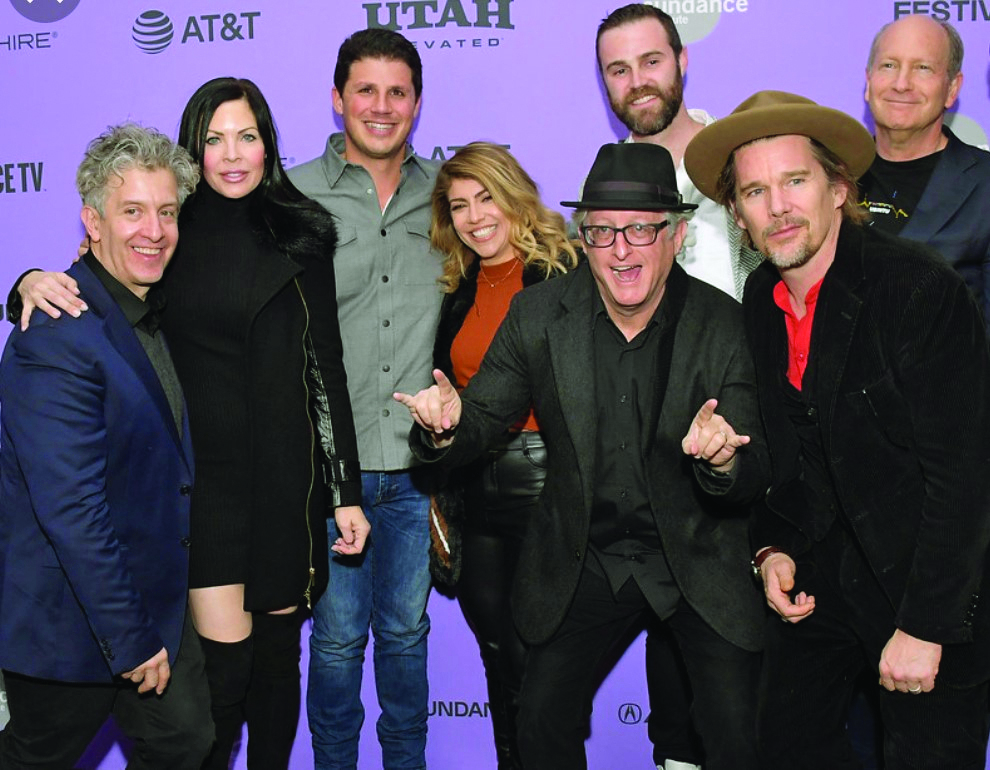When Lee Broda heard last month about Alec Baldwin's shooting accident in which he killed the photographer Halyna Hutchins on a film set in New Mexico, she knew right away what movie it was.
"In fact, I was supposed to be a part of the 'Rust' film crew myself," says Broda, 35, who has lived in Los Angeles for years and has built a career there as a film producer.
"I've worked with a lot of [Rust's] producers. The filmmakers didn't need another producer so I didn't join the team, but I spoke with one producer right after the incident. They told me they were shocked, and they are still trying to figure out how it happened," she says.
Broda says she met Alec Baldwin two years ago on set of the 2020 comedy film 'Chick Fight'. "He was very kind and professional, and that's why I was so surprised when it happened."
When asked what she knows about the incident, Broda said, "there are all kinds of speculations, but from what I've heard, the assistant director had gotten kicked out of a production of one film a few years ago because of a similar incident, and on 'Rust' there were three other gun incidents on set, but luckily no one got hurt.
"I don't know how the assistant director wasn't fired before the fatal accident, I fired a few assistant directors for a lot less," she says.
Broda, despite her relatively young age, already has resume that includes work on quite a few Hollywood films. Four of the films she has produced recently are set to soon screen in theaters across Israel: "The Card Counter," starring Oscar Isaac; "Lansky," starring Harvey Keitel; "The Survivalist," starring John Malkovich; and "Survive The Game," starring Bruce Willis and Chad Michael Murray.
The main producer on The Card Counter is none other than legendary director Martin Scorsese. "There is a producer and there is an executive producer. Scorsese was in charge of the film's vision and content, and he consulted on the script and editing. The executive producer is in charge of attracting investors to finance the film," Broda says.
"My job is usually to be the executive producer, although there are films in which I also acted as a producer. On Lansky for instance, I was both the producer and the executive producer, and I even had a small cameo."
Broda grew up in the central town of Ness Ziona, was drafted to the IDF as a psychometric tests instructor, and following her discharge tried her luck as an actress in Hollywood.
"From a young age, I danced and performed in youth bands. At the age of 16, while I was in high school, I went to the Nissan Nativ Acting Studio. Then I decided to move abroad because I wanted to make it big, and I always preferred American movies and TV shows. For me, Hollywood symbolized the top.
"In the first couple of months, I lived with a former choreographer from Israel, who I knew from my hometown. It helped me a little in overcoming the fact that I was alone, but it was obviously hard for me to suddenly be so far away from my family," she says.
"I remember shortly after arriving in LA, I had a flat tire, I didn't know how to change a tire, and I didn't have anyone to call for help. My parents supported me, but they were concerned all the time, and they kept asking me to come back to Israel, and they still ask me, up until this day."
Broda then signed up for Los Angeles City College Theater Arts. "I was looking for a school with the same atmosphere as Nissan Nativ. It's a small school, but it's where some famous actors started their journey - like Clint Eastwood and Morgan Freeman."
To fund her studies, she danced in her roommate's band and worked as a waitress in her spare time. Towards graduation, she realized she had to overcome a particularly tricky problem to make it big. "The biggest obstacle in Hollywood is that you have to be a member of the Screen Actors' Guild to get casted," she adds.
"In order to be a member of the guild, you must have at least one speaking role in a production that meets the criteria the guild. So, in my third year, I co-produced a short film with a friend, starring myself. We hired someone to write us the script, someone to shoot, and someone to direct. It was a five-minute movie. It was just me, my friend, and an actor who played a kidnapper. We invested $1,000 in it, which was a lot of money for me back then, but it was worth it. And that's how I got my membership."
Broda's next step was to get an agent, which was also done in a particularly creative way. "At the restaurant where I worked, I noticed someone was sitting with a laptop. As a good old curious Israeli, I took a glance at his screen and saw that he was sending actors to auditions. So I got up the nerve and engaged in a conversation with him. I told him I was an actress from Israel. And he said: 'I actually have a role for an Arab woman, send me your details.'
"He sent my portfolio to the casting director, but unfortunately, I wasn't called for an audition, but he became my agent and that's how I started the familiar actor's track. Some of the casting directors called me up for an audition, and I even passed a few of them, but it was mostly small parts and for some of the roles I didn't even get paid," adds Broda.
"At the time I still had an Israeli accent and I was blonde. I realized I wasn't right for anything. So, I dyed my hair black, and as a result I secured more roles, mostly playing an Arab, but I was cool with that. I got to play an Afghan woman in an episode of the NCIS. It was a small part, but at least it was a well known TV series," she said.
When asked how she ended up becoming a producer, Broda said, "at some point, I felt that if I continue on the same path I would only do small roles, and since there are so many actors like me, statistically, I would never achieve a breakthrough. So, I asked my agent to look for a job in casting, even for free. I thought I could be a better actress because I would know exactly what casting directors were looking for.
"Also, I thought it would help me establish good relationships with casting directors, and maybe if they knew me, they would call me more for auditions. As a result, for a few months, I got to work for a famous casting director twice a week for free. After getting enough experience, I started to work as a casting director for short films at the company of Jeffrey Reyes."
Reyes, who is also Jewish, then asked Broda to read a script he was sent about the Holocaust. "After reading, I told him I thought the script was stunning and that I was willing to work with him on the film, even for free. However, the film eventually was scrapped, but I did start working for him in his production firm."
After getting enough experience, at the tender age of 28, Broda left Reyes and founded her own production company, LB ENTERTAINMENT. "I actually didn't even have an office, I worked alone from home or from coffee shops. The biggest difficulty was finding projects. Reyes is a known producer who has been working for decades in the industry, so people would turn to him to find funding. No one came to me at first. I had to look for projects alone. On the other hand, I'd already worked three years as a producer, so I had some connections. I started making calls to directors, actors, writers. I told them that I had investors, that I had money, and that I would love to work with them."
Broda slowly found projects to work on and began to grow. She later opened an office and hired employees, including a personal assistant, an employee responsible for reading and weed through scripts, and a social media manager. From that moment on, the offers never stopped coming.
"In the case of Lansky, I was approached by director and screenwriter Eytan Rockaway, we've known each other for awhile. He told me that his father had previously interviewed the Jewish mobster Meyer Lansky, and had me read the script. I immediately thought it was a great script. For six years we had been campaigning to raise money to produce it and we finally had the chance to shoot it before the coronavirus pandemic hit," she said.
Broda also revealed that she occasionally has to decline to work on certain films if she believes they would not be a success, but she admits to being wrong sometimes. "When I started working independently, I got an offer to produce 'The Revenant,' starring Leonardo DiCaprio. I refused because I didn't believe the movie would be a success, and I was so wrong. Not only did it make a lot of money, but it also won three Academy Awards, which is the saddest part for me, because I haven't had the chance to get nominated yet."
She said she had also turned down an opportunity to produce Quentin Tarantino's 'Once Upon a Time in Hollywood'. "They wouldn't give me credit, they only offered to pay me, and I won't work without getting credited. It's important to me that the stories are inspiring, and that I would receive credit for my work. Of course I also want the film to make a return on investment, since it's a business after all."
Currently, Lee Broda is involved in producing documentaries and is working to promote professional collaborations between Jewish and Arab filmmakers in an organization that she had founded several years ago - WCC - Women creating change.



